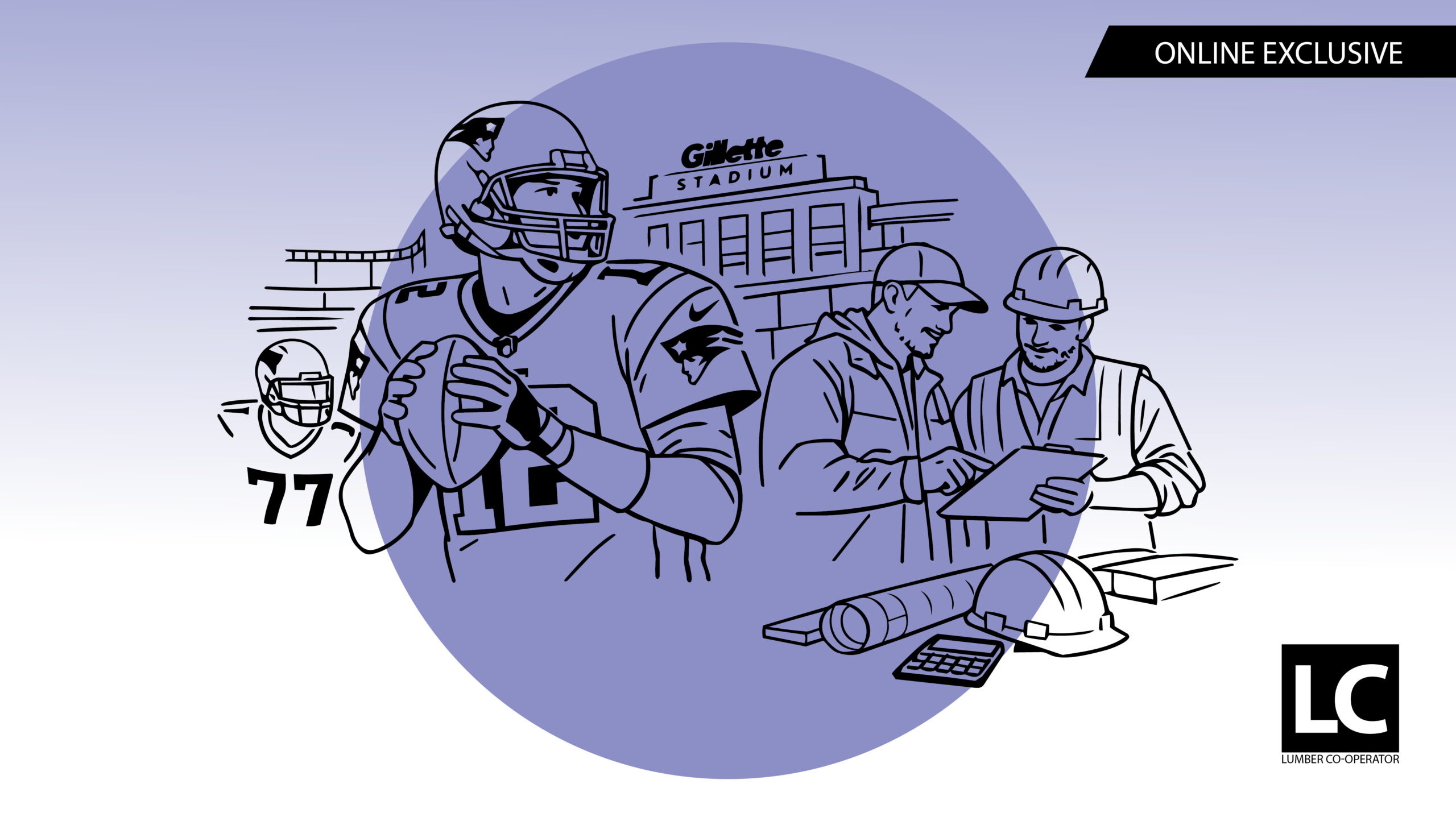In an industry built on tough, physically taxing work, it doesn’t always come naturally to talk about mental health. For too long, the lumber industry has perpetuated a “tough it out” mindset built around getting the job done and pushing forward. But there is a shift happening. Lumber dealers and operators recognize that to retain talent, protect their people, and maintain operations, mental health must be a priority.
The emotional toll of the lumber business is apparent. I’ve heard firsthand from dozens of leaders in retail lumberyards and mills across the country that mental health concerns are growing. And it’s impacting safety, team morale, productivity, and operations throughout the industry.
Mental Health Wake-Up Call
Mental health is not a new issue, but the industry’s willingness to seek out effective solutions is. The pandemic played a role in revealing the effect of stress, isolation, and burnout and forced conversations that have traditionally been avoided, especially among the numerous family-run, often multi-generational companies that make up the lumber industry.
Lumber businesses are fast-paced, labor-intensive environments that depend on heavy machinery. One quick movement or distraction and the outcome can be tragic. Retail yards, for example, are under constant pressure to get products in and out quickly, and the deadlines, high physical demand, and bodily strain create an environment where stress silently compounds. Coupled with limited access to mental health services, especially in rural areas, lumber businesses have a serious risk factor that goes far beyond insurance.
The Lingering Effect of Workplace Injuries
When someone gets physically hurt on the job, the visible impact is just the tip of the iceberg. Often, underneath, there is psychological damage that can linger for months, even years afterward—and not just for the injured team member(s), but for the coworkers and bystanders who witnessed it as well. That kind of trauma sticks with people, and if it’s not addressed, it will fester.
I’ve seen fatalities in the lumber niche involving forklifts, falls from trucks during loading, and horrific lockout/tagout (LOTO) failures at production plants. Every time, the event had an emotional effect that hit the entire operation. Not just in terms of OSHA fines or legal fees, but the real human suffering and long-term reputational risk to the business.
A Long Overdue Shift
If a worker developed their career in an environment where asking for help was seen as a weakness, the idea of showing vulnerability may not feel like an option. But we need to move past that. The “walk it off” mentality does not work when the injury is internal. Unchecked mental health concerns do not just end in burnout; they can lead to drug and alcohol abuse, cutting corners at work, disconnecting from team members, and, in extreme cases, workplace violence.
Fortunately, there is progress being made. More companies are addressing emotional well-being during onboarding. More safety meetings include mental health check-ins. And more business owners are realizing that well-being is a business imperative. When employees feel good about where they work, they stay longer and perform better. And they’re more likely to speak up before something goes wrong. That is both a culture win and a risk mitigation strategy.
Beyond just the lumber industry, there has been a greater cultural shift to end the stigma around mental health. The NFL, for example, used its platform to leverage commercials during Suicide Prevention Month, perpetuating the phrase “it’s okay to not be okay,” urging those struggling to seek help.
Navigating Mental Health Support
Mental health support doesn’t have to be overcomplicated, but it should be intentional. Here are a few factors I advise lumber operations to consider:
- Leadership buy-in: If leadership and management do not commit to following through on a mental health support plan, it won’t stick. This is not a human resources department’s responsibility; it requires leaders to understand and invest in their team’s needs for it to work.
- Include mental health in your safety program: Mental health should be somewhat synonymous with physical safety. Teams should be required to talk about it during huddles and look for psychological and procedural causes of near-miss incidents.
- Survey your team: Leadership should maintain an open line of communication with team members where they can feel comfortable talking about what stresses them out, what they’re worried about, and what support they wish they had. A wider anonymous survey may also be helpful to gauge what an entire team deems valuable in terms of mental health support.
- Partnering with insurance carriers that understand the niche: It is critical to work with a carrier who understands the lumber niche and can be a true resource for insureds. If a claims adjuster doesn’t know what a planer is, for example, that requires another phone call to explain the machinery and potentially requires one to relive a workplace incident. Lumber businesses need insurers in their corner who understand the operations, the equipment, and the people.
- Invest in proactive tools: LOTO systems, dashcams, incident reports and reviews, and even wellness initiatives like teletherapy or on-site counseling can all help build a safer, more resilient culture in lumber businesses. Leadership should require such practices and tools to be used as an added line of defense against workplace injuries and mental health issues.
The Hidden Costs of Doing Nothing
The costs of ignoring mental health in lumber businesses can be huge. Operations have shut down after serious incidents, employees have quit in the middle of shifts because they couldn’t take it anymore, and great businesses have lost top talent because they didn’t recognize the emotional weight their teams were carrying. There’s no one-size-fits-all way to navigate mental health in the workplace, but bringing awareness to the issue, taking effective action, and holding leadership accountable is a great start. If the industry takes it seriously and treats emotional well-being with the same urgency it treats physical safety, everyone will benefit from stronger, more loyal teams and safer, more successful businesses.
Where I work, we get out into the field, walk yards, talk to crews, study the machines, understand the loading zones, and read the accident reports. Our value lies in the firsthand knowledge we have of the industry and the consultation we can provide to bridge the gaps between insureds and carriers. It’s knowing how to help our clients build environments where people can succeed safely and sustainably.
Mental health might still be a tough conversation in the lumber industry, but we’re having it. Those lumber businesses willing to be on the forefront of the mental health conversation will benefit from safer workplaces, satisfied teams, and more seamless operations.
Angelo Ganguzza is vice president and general manager of brokerage operations for Green Tree Risk Partners. As a member company of Pennsylvania Lumbermens Mutual Insurance Company, Green Tree operates as a wholesale brokerage and program business placement specialist, providing workers’ compensation, property, casualty, commercial auto and umbrella, and other coverages in eligible wood industry classes.







